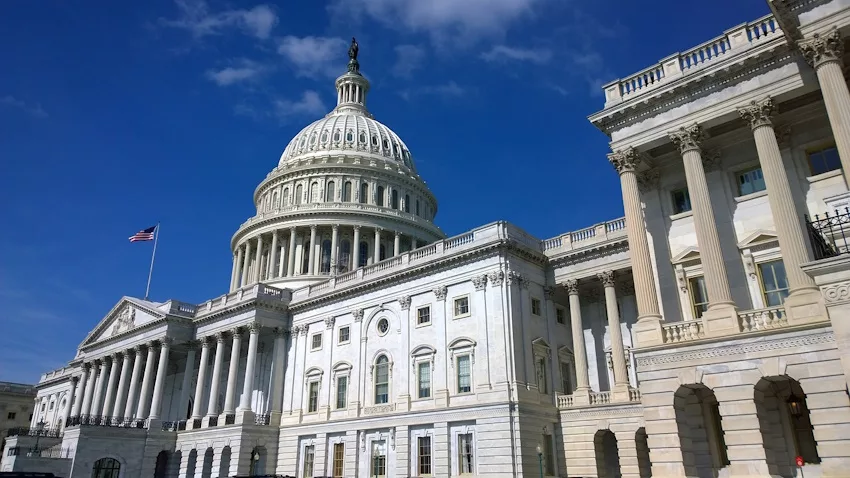General Raffle Guidelines
- Can I legally run a raffle?
- Do you need a license to hold a raffle?
- What’s the difference between a raffle and a drawing?
- California Raffle Requirements
- Texas Raffle Requirements
- Here’s How They Compare
Understanding Raffles and Their Regulations
A raffle is a form of lottery where tickets are sold for the chance to win a prize, with the winner determined by a random drawing.
It’s important to distinguish raffles from other fundraising activities, such as drawings and sweepstakes, as each has legal implications. These legal implications make it important to adhere to the specific raffle laws set forth by each state.
General Raffle Guidelines
Most jurisdictions have requirements for obtaining a license to conduct a raffle and the need for thorough reporting post-event. For 501(c)(3) organizations, adherence to specific raffle rules can impact their tax-exempt status, making compliance a top priority.
To hold a raffle legally, you must follow specific state and federal regulations, which vary by location. Common legal requirements include:
- Obtaining a license or permit
- Ensuring the raffle is for charitable purposes
- Adhering to rules about who can participate (e.g., age restrictions)
- Reporting the raffle’s outcome to the relevant authorities.
As mentioned, U.S. raffle laws can differ significantly by state, so it’s essential to consult with legal experts or your state’s gaming commission to understand the specific laws applicable to your area.
Can I legally run a raffle?

Yes, many organizations can legally run a raffle if they comply with the local, state, and federal laws that regulate gambling and charitable fundraising. These laws often require the raffle to benefit a nonprofit or charitable cause. In many jurisdictions, you may need to register the raffle and obtain a license or permit before you can legally conduct it. For organizations with a 501(c)(3) status, there are specific 501c3 raffle rules that may allow certain exemptions or requirements in conducting a raffle.
Do you need a license to hold a raffle?
In many cases, yes. The requirement for a license or permit to hold a raffle varies by jurisdiction. Typically, if the raffle is open to the public and involves the sale of tickets for a chance to win a prize, it is considered a form of gambling and is subject to regulatory oversight. Always check with your local government or regulatory body to determine if you need a license and how to obtain one. Online raffle laws by state also need to be considered if you plan to sell tickets or conduct the raffle digitally, as online gambling laws can add another layer of complexity.
What’s the difference between a raffle and a drawing?
- Raffle: A raffle is a form of gambling where participants purchase tickets for a chance to win prizes. Each ticket is a direct entry into a drawing to win, and the winners are selected randomly from the pool of entries. Raffles are often regulated by state and local laws, and typically, proceeds must benefit a charitable or nonprofit organization. Due to the nature of raffles, US raffle laws by state and 501c3 raffle rules must be strictly followed to ensure legality.
- Drawing: A drawing is a broader term that can encompass raffles and refers to any contest where winners are selected randomly. Drawings can be free to enter and are not always regulated as strictly as raffles. Unlike raffles, drawings may not require a purchase to enter, aligning with sweepstakes laws prohibiting mandating a purchase for a chance to win. When considering an online format, online raffle laws by state may influence how a drawing is conducted compared to a traditional raffle.
When planning a raffle or drawing, it’s crucial to understand the legal distinctions and requirements to ensure compliance with local and state gambling laws, especially regarding licensing, participant eligibility, and the use of proceeds.
U.S. Raffle Laws in Each State

Each state in the U.S. has its own set of rules governing raffles. To ensure you’re operating within the law, refer to our comprehensive state-by-state guide to raffle laws. This resource provides links to detailed information for each state, helping you navigate the legal requirements for your raffle event.
Raffle requirements across the United States reflect the diverse legal frameworks established by individual states. To illustrate the variations in US raffle laws by state, consider how California and Texas approach raffle regulations, especially focusing on 501c3 raffle rules and online raffle laws by state.
California Raffle Requirements
- Eligibility and 501c3 Status: In California, only nonprofit organizations that have secured 501(c)(3) status and are duly registered with the state can conduct raffles. Online raffles are prohibited in California.
- State Registration: These organizations must also register with the California Department of Justice, securing a unique raffle registration number each year, a requirement that underlines the state’s structured approach to US raffle laws by state.
- Proceeds Allocation: The state mandates that a minimum of 90% of the gross receipts from any raffle event must directly support beneficial or charitable activities within California, reflecting stringent 501c3 raffle rules on the use of proceeds.
- Annual Reporting: Detailed annual reporting of raffle activities, including income and expense distributions, is required, emphasizing transparency and accountability in compliance with US raffle laws by state.
Texas Raffle Requirements
- Eligibility and 501c3 Status: Following 501c3 raffle rules, Texas allows non-profit organizations recognized under various 501(c) classifications by the IRS, including religious, charitable, fraternal, and veterans’ groups, to hold raffles.
- No Specific License Required: Unlike California, Texas does not demand a specific license or permit for raffles, showcasing a distinct approach within US raffle laws by state that still requires adherence to charitable raffle legislation.
- Operational Restrictions: The state limits the frequency of raffles (two per calendar year) and mandates that ticket sales be conducted directly by organization members, highlighting a difference in operational online raffle laws by state.
- Cash Prize Prohibition: Reflecting unique state-specific regulations, Texas explicitly bans cash prizes in raffles. This is a notable aspect of raffle laws by state that contrasts with the broader prize allowances seen in other states.
Here’s How They Compare
- Regulatory Environment: The requirement in California for annual registration and reporting underscores a more regulated approach compared to Texas, where the emphasis is on general compliance without the need for specific permits.
- Utilization of Proceeds: Both states dictate that raffle proceeds must support charitable causes, yet California’s stipulation of a minimum percentage directly allocated to such causes is a specific manifestation of 501c3 raffle rules.
- Prize Limitations: The prohibition of cash prizes in Texas showcases the diverse nature of online raffle laws by state, underscoring the need for organizations to be well-informed about specific state regulations.
Try Our
Free Raffle
Fundraising Platform
Key Considerations for Running Charitable Raffles in the U.S.
Keep the following considerations in mind before deciding on holding a raffle:
- Can Your Organization Legally Run a Raffle?: Eligibility often depends on your organization’s legal status, purpose, and the state where you plan to hold the raffle.
- Do You Need a License to Hold a Raffle?: Most states require organizations to obtain a license before conducting a raffle. The process for this varies widely across jurisdictions.
- What Is the Difference Between a Raffle and a Drawing? Understanding these differences is key to choosing the right type of event for your fundraising goals and ensuring compliance with state laws.
Special Focus: Online Raffle Laws by State
The digital age has introduced the possibility of conducting raffles online, expanding the reach of fundraising efforts but also complicating legal compliance.
Several states prohibit online charity raffles entirely. If your organization is domiciled in one of the following states, you won’t be able to run your raffle online:
- Alabama
- California
- Hawaii
- Indiana
- Iowa
- Kansas
- Minnesota
- Montana – Montana prohibits raffle ticket purchases by credit card, so Montana organizations cannot run raffles on DoJiggy.
- New Jersey
- Rhode Island
- Utah
- Washington
- Wisconsin
Charity Sweepstakes: An Alternative to Raffles

If your organization is not eligible to run a raffle, there are viable alternatives you can explore with DoJiggy. One great alternative is to conduct a charity sweepstakes. This alternative offers an effective way to engage your community and raise funds without the stringent requirements we’ve learned about in this guide.
DoJiggy offers these great features for charity sweepstakes:
- No Subscription Required: Use the platform without a subscription fee.
- Free Online Sweepstakes Sales: Sell entries at no cost.
- Customizable Branding: Personalize the sweepstakes website with your branding.
- Gamification Elements: Engage participants with countdowns, thermometers, and more.
- Comprehensive Support: Access to customer success and technical support for free.
- Optional Donor Tips: Operate sweepstakes for free with a tipping model for platform support.
- Easy Setup: Quickly create beautifully designed, responsive campaign websites.
- Intuitive User Experience: Simplified navigation for administrators and users.
- All-in-One Fundraising: Manage donations, auctions, sales, and ticketing on one platform.
- Legal Compliance: Includes free entry options and customizable official rules.
- Social Media Integration: Encourage sharing with rewards for social referrals.
- Fair Winner Selection: Uses certified randomization for drawing winners.
- Flexible Pricing: Choose between free or percent pricing models for transactions.
Create a free account and see how we can help your organization smash your fundraising goals!
Start Fundraising
Conclusions on U.S. Raffle Laws
Understanding and complying with U.S. raffle laws by state is essential for any organization looking to leverage this popular fundraising method. With the right preparation and knowledge, your raffle can be a legal and lucrative part of your fundraising strategy.
Related Resources
![16 Best Fundraising Platforms for Nonprofits [2024]](https://www.dojiggy.com/files/sites/164/2022/07/best-fundraising-platforms-for-organizations-1-425x264.webp)
16 Best Fundraising Platforms for Nonprofits [2024] Finding the right fundraising platform can make all the difference…

30+ Best Raffle Prize Ideas (& How to Get Them Donated) Desirable raffle prizes provide an inspiring incentive for your supporters…

How to Fundraise with a 50/50 Raffle (Online and Virtual) Hosting a 50/50 raffle is an easy fundraising idea that…
About Lisa Bennett
Lisa is the Sales Director at DoJiggy. She joined DoJiggy in 2006 and loves her job. Prior to working with DoJiggy, she worked at several non-profits and managed special event fundraising.







![16 Best Fundraising Platforms for Nonprofits [2024]](https://www.dojiggy.com/files/sites/164/2022/07/best-fundraising-platforms-for-organizations-1-425x264.webp)

